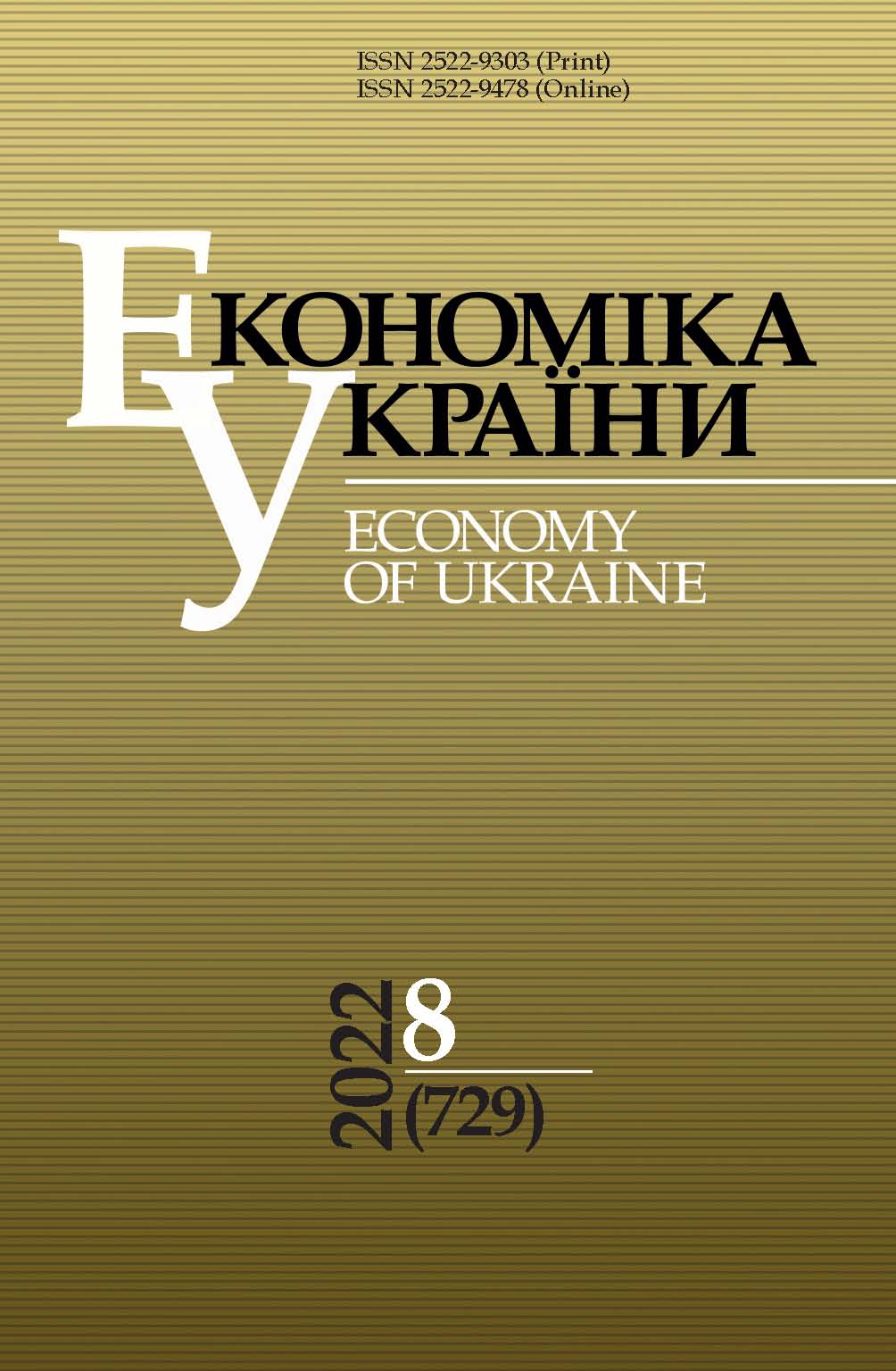FOREIGN EXPERIENCE OF POST-WAR TRANSFORMATION OF PUBLIC ADMINISTRATION AND LESSONS FOR UKRAINE
DOI:
https://doi.org/10.15407/economyukr.2022.08.034Keywords:
public administration; authorities; trust in government; authoritarian experience; post-war reforms; occupation authorities; allies; capacity of the authorities; government; transformation.Abstract
The political, economic and social conditions and factors that determined the tasks and directions of the transformation of authorities in Germany, Japan and South Korea after the World War II are highlighted. The peculiarities of the formation of their national public administration models are substantiated, some conclusions from their experience that may be useful for Ukraine are drawn. Peculiarities of such experience are singled out, by which it is possible to identify the construction of different in terms of institutional composition public administration models. It is shown that the differences of such models had historical origins, and the models themselves were formed under circumstances specific to each country, which affected the mechanisms and consequences of their influence on the post-war development of the state and its place in the global world.
The role and ways of international aid provision for the creation of effective public governance system, in particular the management of the implementation of donor plans and economic development programs, are highlighted, attention is paid to the experience of managing the "Marshall Plan" in post-war Europe on the example of West Germany. The experience of Japan and South Korea allows us to define the possibilities and threats of conservative, authoritarian and liberal approaches to the organization of public administration in the conditions of post-war devastation, which directly affect the effectiveness of governance and the formation of the economic model of state development.
Conclusions that may be useful for Ukraine were made, in particular, about: the need to form a capable government on a meritocratic basis in compliance with the public administration principles in order to rebuild the country's economy after the war; the importance of people’s trust in government as a key factor in the effectiveness of public administration; the decisive role of international support and aid and its proper use for successful post-war reconstruction and development of the country; the unconditional priority of policy goals aimed at the development of democracy and reasonable regulation of the economy for the main objective of the state - ensuring security and high standards of living of the population.
References
Economy of Ukraine, 2015, No. 4, pp. 6-96, available at: economyukr.org.ua/?page_id=17&lang=uk&mode=view&year=2015&issueno=4 [in Ukrainian].
Philpott D. Revolutions in Sovereignty: How Ideas Shaped Modern International Relations. Princeton, Princeton University Press, 2001.
Gareau F. Morgenthau's Plan for Industrial Disarmament in Germany. The Western Political Quarterly, 1961, Vol. 14, No. 2, pp. 517-534, available at: www.jstor.org/stable/443604
doi.org/10.1177/106591296101400210
Guzikova M.O. Transformations of German sovereignty after World War II. In: International relations in the XIX-XXI centuries. Collection of young researchers works. Vol. 4. Yekaterinburg, 2008, pp. 31-37 [in Russian].
Dubinin Yu.A., Martynov B.F., Narinskiy M.M., Yuryeva T.V. Yalta-Potsdam System, 2017, Vol. 3. In: History of international relations. Textbook. In 3 vols. A.V. Torkunov, M.M. Narinskiy (Eds.). M., 2017 [in Russian].
Kudryachenko A.I. Federal Republic of Germany: principles of democratic ascent. Kyiv, 2020, available at: ivinas.gov.ua/images/FRNzasadysxod2020.pdf [in Ukrainian].
Sharov O. Lessons and perspectives of the "Marshall Plan" for Ukraine. Economy of Ukraine, 2015, No. 4, pp. 12-18, available at: economyukr.org.ua/?page_id=723&lang=uk&aid=553 [in Ukrainian].
Erhard L. Prosperity through competition. M., 2001 [in Russian].
Kunz D.B. The Marshall Plan reconsidered: a complex of motives. Foreign Affairs, 1997, Vol. 76, No. 3, pp. 162-170.
doi.org/10.2307/20048105
Vlasyuk O.S. The Marshall Plan for Ukraine: economic, reformative and foreign policy aspects. Strategic Priorities, 2014, No. 3, pp. 5-13 [in Ukrainian].
Streltsov D.V. Japan's system of government in the post-war period. M., 2002 [in Russian].
Izotov A. Japan: the concept of taking the lead. M., 1991 [in Russian].
Panov A.N. Shōwa Revolution. Modernization of Japan in the post-war period (1945-1952). M., 2010 [in Russian].
Molodyakova E.V., Markaryan S.B. Modernization: Japanese phenomenon. Eastern Analytics, 2011, No. 2, pp. 7-13 [in Russian].
Japan in the era of great transformations. D.V. Streltsov (Ed.). M., 2020 [in Russian].
Tolstokulakov I.A. Political modernization in the Republic of Korea (1945-1987). Vestnik of the Far East Branch of the Russian Academy of Sciences, 2005, No. 2, pp. 49-64 [in Russian].
Suslina S. State regulation of the economy: the experience of the Republic of Korea, available at: vasilievaa.narod.ru/ptpu/7_4_03.htm [in Russian].
Prozorovskiy A.S. Political leader and modernization in the East. The case of Indonesia and South Korea in the second part of the 20-th century. M., 2009 [in Russian].
Mazurov V.M., Sinitsyn B.V. South Korea. Dramatic crossroads. M., 1963 [in Russian].
Republic of Korea: the formation of modern society. A.V. Zagorskiy (Ed.). M., 1996 [in Russian].
Downloads
Published
How to Cite
Issue
Section
License
Copyright (c) 2024 Economy of Ukraine

This work is licensed under a Creative Commons Attribution-NonCommercial-NoDerivatives 4.0 International License.



